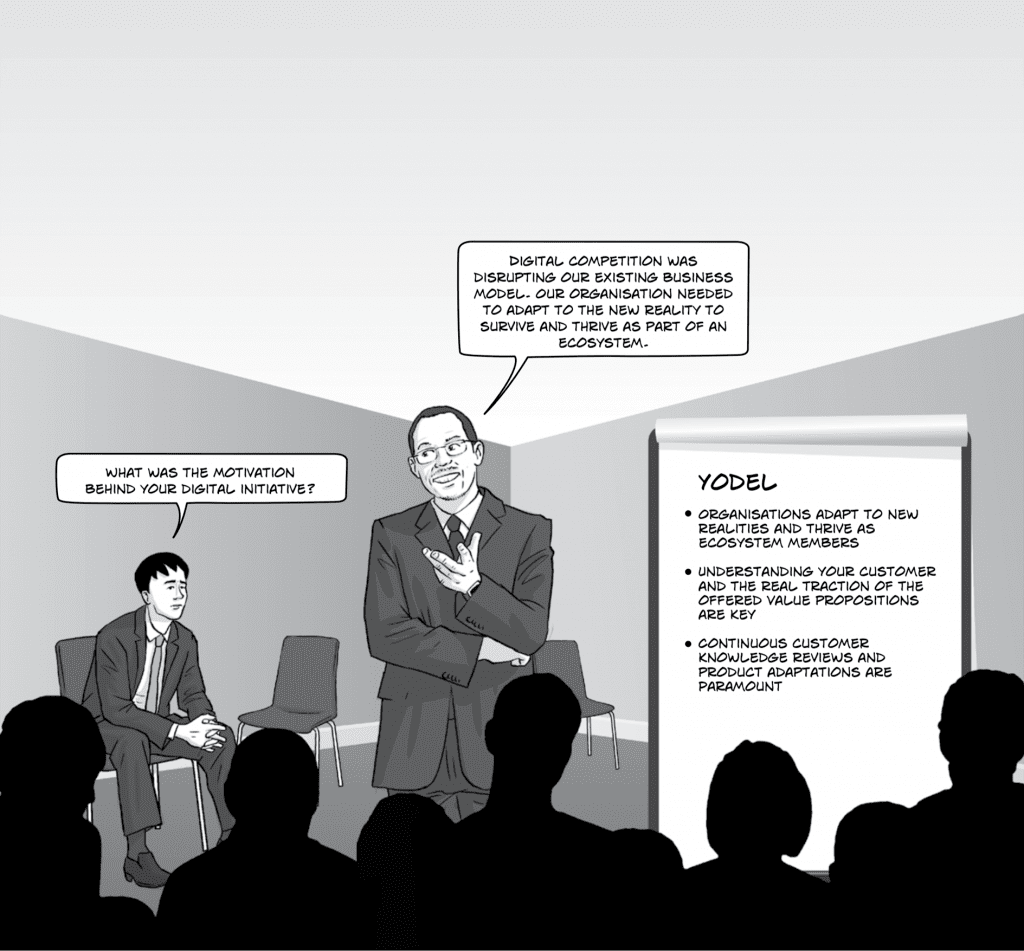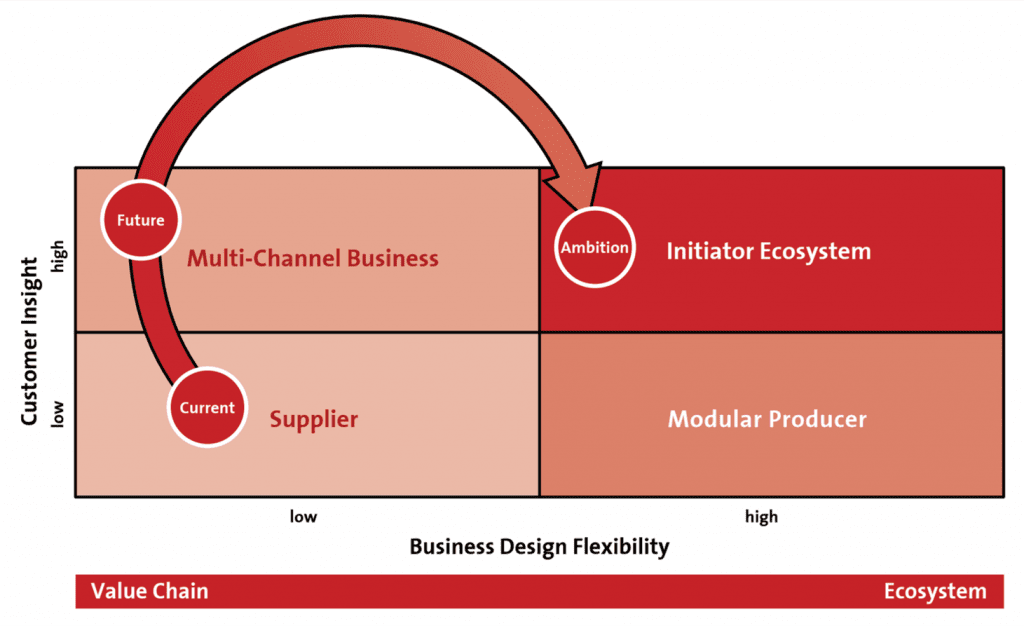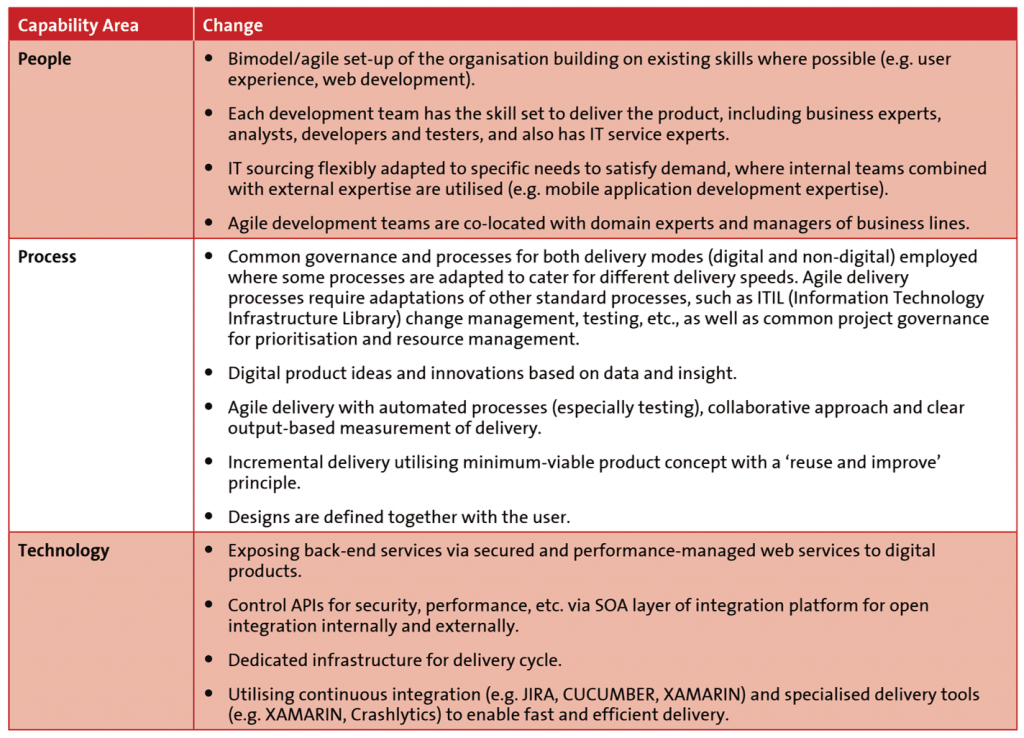Yodel is an independently owned UK-based parcel carrier with a focus on retail. It offers a range of delivery options to suit business needs and handles over 155 million parcels per year on behalf of approximately 1,000 clients. The movement of every parcel is determined by the barcode on its label, and technology drives the entire organisation. Currently, Yodel has a Supplier relationship with its retail clients and experiences competitive pressure in both pricing and service development. ‘Net promoter’[1] scores are measured regularly for both clients and their customers, and consumer insight is used extensively to optimise the services offered.
To date, Yodel’s current digital capability has restricted the services available and has frustrated the desire to develop new products that are being requested by its clients and customers.
Yodel has embarked on a journey to change its client relationship from being a Supplier to a Multi-Channel Business, with the aspiration of participating in the retailers’ ecosystem and having an intimate understanding of the client in order to provide best-in-class delivery.
Yodel has started its digital transformation and is extending its digital capability to enable it to deliver to the requirements of its stakeholders. These stakeholders include: (a) clients, i.e., the retailers utilising Yodel’s services; (b) customers, i.e., the consumer who receives a delivered parcel; and (c) colleagues, i.e., drivers/couriers, office workers, etc.
All aspects of a required digital capability are being addressed and the key changes will be as follows:
The transformation process Yodel is employing is characterised by a top-down approach where, as part of the overall company strategy, ‘digital’ is one of a suite of strategic initiatives.
This provides the organisation with focus, investment and priority.
A senior leader is managing the definition and implementation of digital capabilities as well as the delivery of all digital products.
The initiative requires the supporting organisational culture to be aligned, and addresses the different ways of implementing and working with a structured process from design to deployment.
The implementation manages the involved stakeholders actively, utilising the following key insights:
- Successful digital transformations are based on how the organisation utilises technology to transform the customer experience, the strategy and its operating model, and not just from implementing new technology.
- A digital transformation is like any other major change process, requiring clear change management to address people challenges as well as the technology and process challenges.
- Leadership knowledge in digital transformation and managing change are required to be successful.
_____
[1] Mierzwa, M.: ‘Instrumente zur Messung der Kundenzufriedenheit und ihre Eignung für ein effektives Kundenzufriedenheitsmanagement’, Whitepaper der 2hm & Associates GmbH, 2015.




